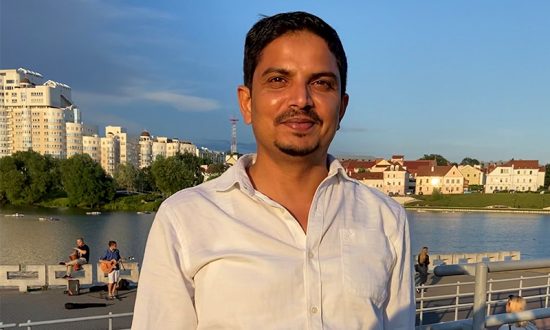Dr Kazmi holds a Masters degree in Public Health from The University of Sheffield and a Diploma in Tropical Medicine & Hygiene from RCP London. He is adept in key public health attributes and research methods. He has a special interest in tropical diseases, epidemiology, immunisation and outbreak investigations.
The inspiration
Growing up in a typical middle-class household in Patna, I always aspired to do something good for everyone around me. That led me to work hard and pursue medical science for a career. I eventually completed my MBBS from the Aligarh Muslim University and managed to get a job with the World Health Organization. But my seniors and colleagues inspired me to consider doing a Masters programme from the UK and told me all about the depth of knowledge I would gain and the value it would add to my resume.
Planning finances
Coming from small beginnings, I never thought it would be possible for me to study abroad, so I started searching for options online. While it was important for me to find the right programme and university, the availability of scholarships was critical. Searching online, I found that the UK offered a host of scholarships to students from India. I also applied for the Commonwealth Scholarship and luckily secured a full ride, with coverage of tuition fee and living and lodging expenses. The scholarship made it possible for a student like me, with limited resources, go after something so unfathomable. So, I went on to do my Masters in Public Health (MPH) from the University of Sheffield, followed by a Diploma in Tropical Medicine & Hygiene from the Royal College of Physicians, London.
The experience
Studying in the UK was a phenomenal experience. The format of education followed by the universities was far removed from what I had ever experienced. The superior pedagogy, well-designed course curriculum and a classroom full of students of different nationalities made my university experience so unique and enriching in many ways. The UK offers a great balance between the quality of education and quality of life. My time as a student in the UK gave me exposure to new cultures, ideologies and perspectives.
Another important part of education in the UK is the mentorship that students receive from their professors. My mentor really helped me manage my life better and steered me towards the right direction in my career. He also helped me find a place in the community and encouraged me to join activities that would help me feel closer to home. This kind of support really had a huge impact on my psychology and fuelled my drive to keep at it.
The impact
My time at the university gave me an edge and provided me with the right qualification and technical expertise, which helped me secure a job with the MSF – Doctors Without Borders. After joining the MSF, I coordinated research for the treatment of Kala Azar in HIV patients in Bihar, where our findings and recommendations were accepted by the World Health Organization as the first line of treatment. I also got a chance to work with Rohingya refugees in Bangladesh and coordinate phase 2 & 3 of global clinical research on drug-resistant TB for 2 years in Uzbekistan and Belarus.
I also coordinated research on Covid 19 for MSF in Patna in collaboration with AIIMS, CMC Vellore and the University of Oxford to find initial lab and clinical parameters to determine which patients may develop the need for critical care. During Covid, outside of my work with MSF, I also opened a charity clinic for patients with no access to quality primary care facilities.
Final word
All things considered, it was my education in the UK that provided me with a chance to bring real positive change in society. With the range of scholarships on offer, the mentorship available and the quality of education in play, I would strongly recommend all students looking for an education abroad to consider the UK.




